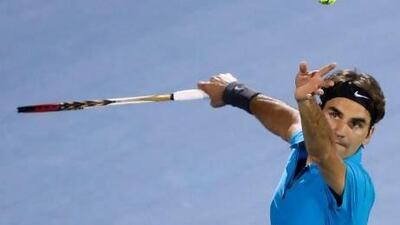By this time last year, Roger Federer had appeared in seven tournaments, played 29 matches, won three titles and 2,855 ranking points.
This year, the Swiss has appeared in four tournaments, played 17 matches and has yet to win a title.
His last match was a quarter-final at Indian Wells on March 14, when he lost to Rafael Nadal, and he will not be returning to competition till the Madrid Open, which starts on May 5.
That is a seven-week break and according to his 2013 schedule, Federer will also be taking a four-week break after Wimbledon and another four weeks off after the US Open.
This suggests a shift in Federer's focus. Having spent a record 302 weeks at No 1, he is not as interested in the rankings anymore and wants to conserve himself for the bigger occasions.
At the age of 31, the 17-time grand slam winner realises he needs as much rest as possible to keep himself mentally fresh.
The ATP exemption rules, which allow a player who has played 600 career matches, has 12 years of service and is 31 years of age complete exemption from the otherwise mandatory World Tour Masters events, certainly help Federer's cause.
He can skip those events without the fear of penalties.
Fans, then, will have to get used to seeing draws without Federer's name included.
With the 2016 Olympics a stated goal, longevity is Federer's primary focus.
Follow us

